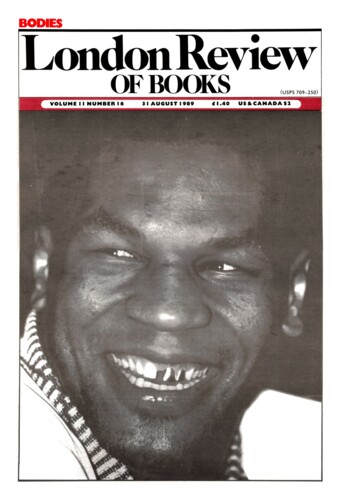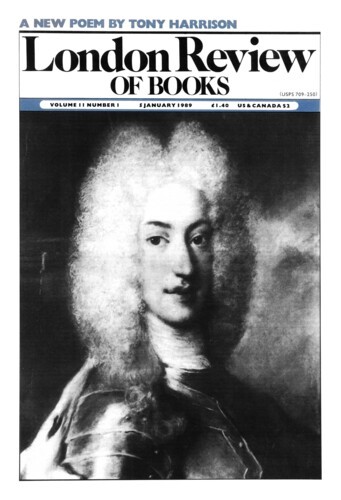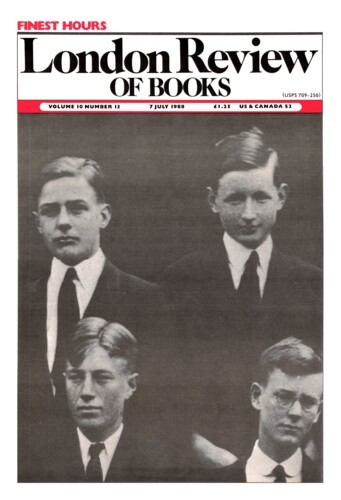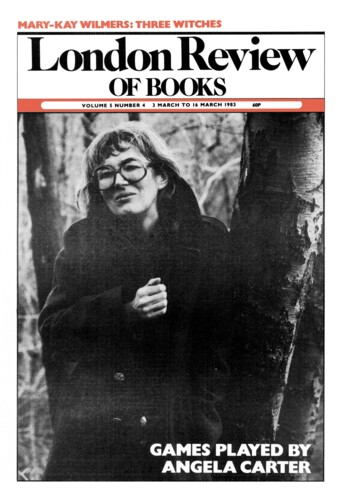Kissing Cure
Peter Gay, 31 August 1989
It was Freud’s dubious privilege to attract endangered personalities. Possibly the most gifted, almost definitely the most interesting of these was Sandor Ferenczi; and the publication of a clinical journal he kept during most of 1932, the year before his death, allows the public interested in such matters to assess, far better than before, the range of his professional gifts and the depth of his psychological vulnerability. The English translation is fluent; the editing, though at times partisan, is helpful. This is a welcome addition to the growing number of significant texts illuminating the history of psychoanalysis.




